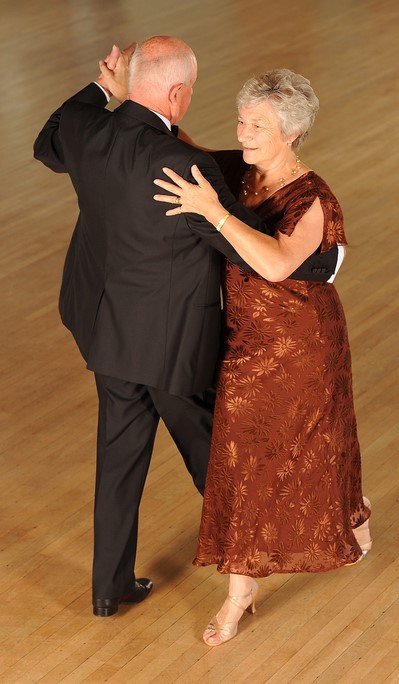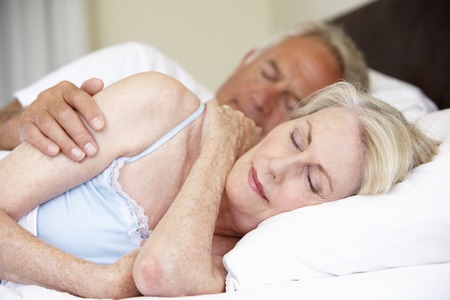Music for Fitness -- What Music Can Mean to Your Health
It's time to contemplate the use of music for fitness, based upon current research and future potential. Over a hundred landmark studies confirm that music is a means to enhance health and physical performance.

Thanks to brain imaging devices such as fMRI, EEG, and fNIRS, scientists have greater insight into how music affects the brain during exercise. We now know that music activates practically every part of the brain, and those extensive effects on the brain indicate potential impacts of music yet to be discovered.
Ever watch a child dance, bounce, clap, and sing? Not only does the brain distinguish music from noise, we respond accordingly.
Neuroscientists have determined that listening to music stimulates the feel-good neurotransmitter that has a motivational impact. Dopamine provides us with the same feelings as a piece of chocolate, sex, or certain drugs.
Music also stimulates the release of oxytocin, which plays a part in strengthening emotional bonds and trust between people.
Effects of Music on Our Health
- Not only is it a means of expressing emotions, music can alter them. Because of this, we can use music for fitness and mental health. It not only can improve mood, upbeat music can make us feel better, and elicit a positive emotional state. Listening to sad music may be a cathartic experience and help during times when we need emotional healing.
- Studies focused on music and stress have found that music can reduce or prevent stress and anxiety. This has been demonstrated before and after surgeries, and among hospitalized children. Not only did oxygen saturation levels increase, pain and heart rate decreased.
- Music is helpful in pain management – sometimes more effective than the use of drugs. This has been shown among people with fibromyalgia, and post-surgery patients.
Relaxation Music on Amazon
- Premature babies exposed to lullabies showed improved function, sleep, and eating patterns. The same sounds and lullabies also decreased the parents’ stress.
- Soothing music can augment immune function because it increases a chemical that helps protect us from disease. A 2013 meta-analysis links the promise of music as medicine.

- Critically ill patients have shown stress hormone reduction and a reduction in the protein indicated in higher death rates, diabetes, and heart problems.
- Music can lower blood pressure and heart rates, reduce stress hormone levels and chemicals that produce inflammation.
- Music is relaxing and may improve sleep quality in people who struggle with sleep disorders.
- Stroke patients who listened to music improved 60% in verbal memory after three months.
- Slow rhythm can induce meditative states, ease migraines, PMS, and have a calming effect on behavior.
- Music may impact memory. This finding presents the potential of music to aid in the treatment of dementia. As mentioned earlier, music releases dopamine, which is important in learning and memory. It may also improve concentration.
Music and Exercise

Why should you consider including music for fitness?
Studies indicate that those who listen to motivational music while exercising feel better during and after their workouts. People who listen to upbeat music utilize more oxygen than those who listen to slower music.
Furthermore, faster tempos tend to increase effort, improve endurance, motivate, and enhance performance. In a six-day bike race, those who listened to music achieved faster times.
A University of Wisconsin study found that exercisers listening to music exhibited increased average heart rates, worked harder, and burned 7% more calories.
Dancing is shown to increase cognition, working memory, and verbal fluency.
Research using EEG monitoring during exercise found enhanced enjoyment, less fatigue, and greater energy levels by 28% more than silence.
Military personnel say that they march faster, further, and with less fatigue when marching to martial music.
Research has found that 125 to 140 bpm are best for workouts. Music in the upper end of that range are best for HIIT. You can get music specifically geared for working out.
Music For Exercise and Workouts at Amazon
 Dancing feels good, increases balance and strength, and the sequences are great for your brain.
Dancing feels good, increases balance and strength, and the sequences are great for your brain.Good Vibrations
Because music is sound, it is a vibration. In vibroacoustic therapy, low frequency vibrations that can be felt and heard -- similar to the subwoofer in your home -- are transmitted to the body through speakers.
Short-term use of this method improved symptoms in Parkinson’s patients, such as less rigidity, ability to take longer steps, reduction of tremors and increased walking speed.
Researchers are hopeful that the use of low-frequency sound and vibration may also help people with fibromyalgia and Alzheimer’s.
Use Music for Fitness and Health -- there's no downside
As part of your health care, you might consider a music therapist for physical, emotional, cognitive and social needs. Music therapy is shown to be useful for treating autism, dementia, Alzheimer’s, chronic pain, emotional trauma, and depression.
Music-based treatment opens an exciting frontier for research. In the future, we may more readily consider this non-traditional treatment as medicine.
Maybe it’s time to get hooked on music as a healthy lifestyle choice. Use music for fitness because it just may help you stay healthy in more ways than you ever imagined.
Consider literature's references to the psychological effect of music.
Give me, oh, give me, the man who sings at his work! He will do more in the same time, he will do it better, he will persevere longer. ~Thomas Carlyle
More Topics That May Interest You
Some of the advertisers on my website are affiliate partners, which means that I may receive a small commission from any sale, at no extra cost to you.
For example, the Amazon affiliate advertising program is designed to provide a means for sites to earn fees by advertising and linking to amazon.com.
Your tips and purchases help to support this free-information website.
Thank you.
The content of this website is for informational purposes only and not intended to be taken as a replacement for professional medical advice, care, diagnosis or treatment by a doctor, dietitian, physical therapist, nutritionist or fitness instructor.
DO NOT BEGIN ANY EXERCISE PROGRAM WITHOUT CHECKING WITH YOUR DOCTOR FOR UNDERLYING CONDITIONS THAT MAY PREVENT YOU FROM DOING SO.




